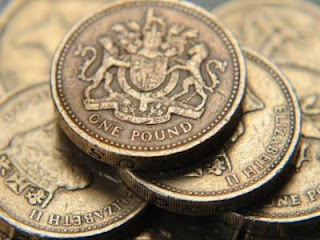First, let’s define what a capital gain is. A capital gain is the difference between what you paid for an investment and what you received when you sold that investment. If you made a profit on the investment, you have a capital gain. If you lost money on the investment, you have a capital loss.
Now, let’s look at the tax rates. For 2010 tax returns, short-term capital gains (assets held one year or less) on the sale of precious metals are taxed at your ordinary income tax rate -- 10, 15, 25, 28, 33, or 35 percent. This is similar to the way short-term gains are taxed on stocks and mutual funds. However, long-term capital gains (assets held longer than 1 year) are taxed at a flat 28%.
Which is better – long-term or short-term? Well, it really depends on your individual tax situation. If you are in a tax bracket that is higher than 28%, then long-term gains may be better. If you are in a lower tax bracket, then the opposite may be true.
Where do I report my gains or losses? You use first in, first out method of calculating short or long term gain. Your report what you bought, month/year you bought it, how much you paid for it, and then the same for the sale side of the transaction on Form 1040, Schedule D. You can use Quicken to remember your investment purchase details or keep the paperwork handy. Gains and losses are reported for each transaction and once all of them are figured, you will either have a net loss or net gain from all of your trades.
What happens if I sell my precious metals at a loss? That's difficult these days, but if your overall capital losses are more than your capital gains, you can claim a capital loss deduction. You can use your total net loss to reduce your income dollar for dollar, up to $3,000 -- or you can carry over any unused parts and treat it as if you had incurred it in the following year. If part of the loss is still unused after that, you can carry it over to later years until it is completely used up. This is a compelling reason to use the same tax preparer every year.
How do I protect my business? Remember that taxes are just one element of investing in precious metals. Private dealers require cash. Even online dealers charge a premium for you to use credit cards. If the IRS audits your business and the following is true:
- you didn't use business checking or business credit cards to buy precious metals,
- you're not taking write-offs from the private checking account or credit card you used to buy precious metals so those accounts don't appear in your QuickBooks file.
- and you didn't write off your safety deposit box fee (or other investment expenses) as business deductions.
Also, be sure you get advice from your financial advisor and/or tax advisor, as the information discussed in this article just scratches the surface on the topic. There is often new tax legislation on the table and rates change from year to year.
What do you think?

